As discussions of healthcare continue to dominate political discourse in the United States, the debate around universal healthcare continues to heat up. Advocates for universal healthcare posit that it is not just a matter of health, but a moral and economic imperative that could rectify disparities seen in the current healthcare system.
Universal Healthcare as a Moral Imperative
When examining the moral argument for universal healthcare, proponents draw upon the belief that access to health services is a basic human right. Advocates argue that universal healthcare is a moral imperative and a tool for economic equity. This perspective insists that allowing any barrier to healthcare access is inherently unjust, particularly when the consequences can be life-altering or even fatal.
Countries that have adopted universal healthcare systems, such as Canada and many Western European nations, often report better overall health outcomes compared to those without such systems. These countries generally see lower rates of infant mortality and higher life expectancy among their populations, leaving some to argue that universal systems provide not only ethical benefits but practical advantages as well.

Economic Benefits of Universal Healthcare
The economic implications of universal healthcare cannot be overstated. Advocates maintain that systems that prioritize universal access allocate resources more efficiently, trimming costs associated with emergency care used as a fallback when preventative measures are unaffordable. Countries with universal healthcare systems often report better health outcomes and lower overall costs. The rationale is that when everyone has access to preventative care, fewer individuals find themselves in dire financial situations due to unexpected, and high, medical expenses.
On the other end of the spectrum, the costs of inaction—namely, continued reliance on private insurance structures in the U.S.—can be seen to contribute to economic disparity, leaving many unable to afford necessary treatments, while driving families into debt over health expenses. In a country where health care subsumes an enormous proportion of household budgets, the need for a change is palpable.
The Political Battlefield and Resistance
Despite compelling arguments, the push for universal coverage in the U.S. faces significant opposition, particularly from the powerful private insurance industry, which has much to lose. The push for Medicare for All in the U.S. faces strong opposition from the private insurance industry. With extensive resources, these entities lobby vigorously against any transition toward a single-payer model, framing the argument in terms of higher taxes and potential loss of choice for consumers.
While concerns about funding and choice warrant discussion, they can share the stage with dialogues surrounding ethical considerations. The conversation around universal healthcare remains complex: balancing principles of fairness and equity alongside economic practicality creates a challenging landscape.
This is where the benefits of negotiation may come in. Bridging the gap between differing viewpoints could yield viable compromises that allow for an evolution of the healthcare system without the elimination of a hybrid model that includes private options. The challenge lies not in the desirability of universal healthcare theory but in how it is navigated through the present political landscape.
As with many complex societal discussions, the conversation is evolving. Various proposals are circulating, each being evaluated for its feasibility against a backdrop of politics, economics, and deep-seated beliefs surrounding public welfare and personal responsibility.
In conclusion, while a unified call for universal healthcare reverberates throughout the nation’s civic forum, the realization of such a system in the U.S. will require not just strong advocacy but also an acknowledgment of diverse perspectives regarding health, wealth, and access.



